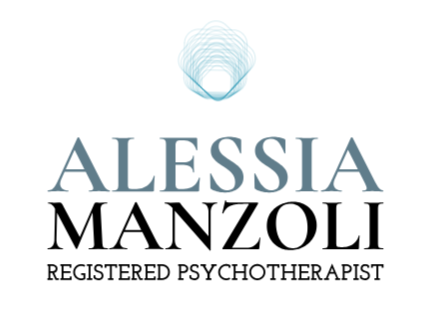Embracing the Quarter-Life Crisis: Navigating Challenges and Finding Empowerment in Your 20s and 30s
You’re in your 20s, maybe early 30s, finished with school and finally entering the so-called "real world." You're working now (or trying to), but it's more draining and confusing than you expected. You're supposed to feel free. You're supposed to feel like an "adult". Instead, you feel lost. Stuck. You're wondering...is this really what adulthood is?
If this sounds like you, you’re not broken, and you're not destined for a lifetime of exhaustion. You’re going through a quarter-life crisis, and this is far more common than you'd think.
What Is A Quarter-Life Crisis?
A quarter-life crisis occurs at a pivotal time in your 20s and 30s when your roles, perspectives, and goals may be changing. These changes can introduce a theme of uncertainty within a number of domains in your life, including in your career, identity, relationships, and life's purpose.
Your mind may start wandering to questions like:
What am I doing with my life?
Who am I outside of school, work, or relationships?
Did I make the wrong choices for my education, career, or relationships?
Am I truly happy, or just going through the motions?
Given how big these questions are, it is very common for this stage to come with an increased experience of anxiety, burnout, depression, and existential dread. You might even feel lost, behind, or overwhelmed by the pressure to “have it all figured out.”
While this is not a clinical diagnosis, it’s a real psychological experience shared by many young adults, especially in a world that often ties self-worth to success, stability, and comparison. For those currently facing a quarter-life crisis, there is the added pressure of economic instability, climate change, social media strain, political uncertainty, and feeling that your transition from youth into adulthood was lost to the pandemic.
Having a name for this experience can help contextualize and make sense of it, empowering you to move forward in an intentional way. Personally, I wish I had a label for the quarter-life crisis when I was in my early-to-mid twenties, because I went through exactly this. Without having any context or name for it, I defaulted to thinking that there was something wrong with me. When I entered the workforce, I was happy for about a year before I went into autopilot mode. It was confusing for me, because I knew I was good at my job, and at times I really enjoyed what I did - but mentally and emotionally, I began to suffer. I felt overwhelmed to the point that I would cry at work. I was burnt out and unable to admit that I was unhappy. Eventually, my anxiety was so overwhelming that I needed to take time off work. That was when I finally began to see a therapist and learned that this was an opportunity for me to realign. When I realized that my choices were rooted in a sense of what I was supposed to be doing, rather than what excited me, I started to create changes that aligned with what I actually wanted my life to look like. This took time, patience, tears, trying new things, more tears, meeting new people, and slowly rebuilding trust in myself and my identity. Eventually, I learned how to follow my internal compass and make decisions based on what felt right to me, even if I wasn't sure how they would turn out.
Looking back, I see now that I wasn’t broken. No...I was evolving. It just didn’t feel like growth at the time. That’s what a quarter-life crisis can be: not the end of something, but the messy middle before a new beginning.
Things to Keep in Mind During a Quarter-Life Crisis
A quarter-life crisis is a time of reflection. It invites a reassessment of your choices, a reflection on relationships, and deep soul-searching in order to understand who you are and what you want in life.
In these times, it is important to remember that:
Uncertainty is a normal part of growth. This is a part of transitioning into adulthood. Though it is uncomfortable, it is a sign that you are in an important stage of personal development.
Social media is not reality. It can be helpful to curate your social media feeds with content that is inspiring and uplifting, rather than content that fuels self-doubt, heightens anxiety, or reinforces the urge to compare yourself to others.
It's okay to take your time and try new things. Intentional change takes time. Trying to change everything at once can create more chaos in your life. Allow yourself to explore new activities or routines, one at a time, and truly learn whether or not you enjoy something before committing to anything.
You are not alone in this. This is a common feeling that many other people in your position will experience. Your own social groups may even be facing this alongside you. Reaching out and building a sense of community can help with feelings of isolation or alienation in this time.
The way through uncertainty is to create meaningful change. Only you can determine what is meaningful for you. It is helpful to use tools like mindfulness, journaling, and self-reflection to connect with yourself, understand your goals, values, and needs, and make decisions from an intentional place.
You deserve support. Self-discovery can be a daunting task amidst so much uncertainty, and you do not need to go through this on your own (I certainly couldn't do it alone!) Reach out not only to peers, but also to mentors or mental health professionals for guidance. Let yourself be held in these hard times.
when to Consider Therapy
If you are feeling overwhelmed, anxious, depressed, isolated, or unable to perform daily tasks such as going to work or school, it may be time to consider seeking professional support. Therapy can offer a space to slow down, explore who you are becoming, and move forward with more clarity.
More specifically, therapy can help with:
Understanding what you are going through and why
Coping with stress, burnout, and anxiety
Clarifying your values and goals
Exploring identity without judgment
No matter what stage of this journey you are in, please remember to be gentle with yourself and others. You don’t need to have it all figured out. Your 20s and 30s are for asking big questions - not for having all the answers.
If you're in this stage and feel ready for support, I’d be honoured to walk alongside you. You can reach out to learn more about how therapy with me works, and how we might begin this journey together.
Wishing you well and cheering you on,
Alessia

